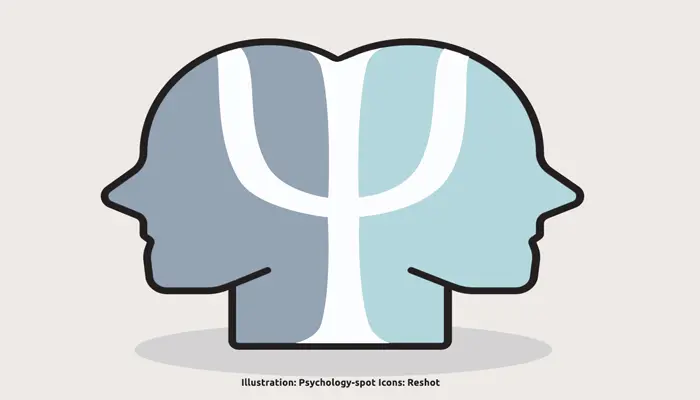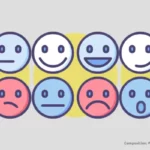
Sex is not everything, but it has an undeniable importance in our lives. Intimacy favors connection and reinforces love in relationships, as well as consolidating our self-esteem and increasing self-confidence. It also decreases stress, makes us happier and improves the quality of life in general.
Yet despite all those benefits, we sometimes go through periods where sex is the last thing on our minds. At certain stages of life, it is not exactly something we seek, need or want. Factors such as anxiety, stress, mood disorders or changes, or self-esteem problems can completely suppress the sexual response. In these cases, restoring balance is essential, not only for our sexual life but also for our well-being.
When emotional problems walk through the door, sexual desire goes out the window
Despite all the benefits of being sexually active, a recent study at Indiana University revealed that sexual activity is declining all over the world, from Japan to Europe to Australia.
These researchers found that the frequency of sexual intercourse has decreased considerably, especially in the younger generations. They speculate that one reason may be related to rising rates of anxiety and depression globally. Without a doubt, when mental problems walk through the door, desire goes out the window.
It is not a secret for anyone: when we face difficult times, our sex life is not exactly a priority. Libido depends on factors of a biological, psychological and social nature, including mental health. Exhaustion, stress, anxiety, worries, relationship conflicts, work problems or even sleep disorders can alter our mental health and, as a consequence, cause our libido to plummet.
For this reason, it is understandable that when we suffer from a mental health problem or go through a prolonged period of stress, we experience a marked decrease in desire and manifest a disinterest in sex.
Anxiety, for example, is one of the main factors that contribute to erectile dysfunction in men. A study carried out at the University of Florence revealed that shyness and performance anxiety, especially at the beginning of sexual life, is the main cause of erectile dysfunction in young people.
Women suffering from anxiety also experience difficulties in the sexual sphere. They may have trouble getting aroused and reaching orgasm or even experience physical pain during intercourse, as a research conducted at the University of British Columbia has revealed. This study indicated that anxiety can nullify feelings of pleasure in women, so it is no coincidence that dyspareunia is 10 times more common in women with an anxiety disorder.
Major depression can also affect libido, curbing desire and reducing those moments of intimacy that are so necessary for the couple to connect. In addition, it can cause a variety of sexual problems, from impotence and erectile dysfunction in men to sexual pain and loss of desire in women. In fact, a diagnosis of depression increases the risk of dyspareunia by three times.
Even postcoital dysphoria, which involves experiencing a wave of negative emotions right after sex for no apparent reason despite the fact that the experience itself was pleasant and satisfying, is much more common in people who suffer from anxiety or depression.
This means that many times behind the lack of sexual desire there is a mental problem, which can be caused by certain thought patterns and lifestyle habits that lead us to relegate our mental health to the background.
To connect, you must first disconnect
The researchers suspect that also technology may be at the root of the lack of sexual desire. Its attractive and even addictive nature is consuming much of our attention and time, often getting in the way of relationships.
In fact, intimacy demands connection, time, and patience. However, excessive use of screens not only reduces our ability to connect and interact physically, but also increases the risk of mental disorders, an explosive cocktail that can end up draining libido.
For that reason, if you think that technology may be at the root of the lack of sexual desire, it is important that you turn off the devices more frequently and spend more time with your partner or discovering yourself. Remember that, to connect, either with another person or with yourself, you must first disconnect.
Recovering sexual desire by improving mental health
Sometimes, mental disorders not only cause to lose the spark or attraction to a partner, but even interest in sexuality. When the problem is not addressed, often due to embarrassment or discomfort, it can end up causing a distance between the couple or affecting our ability to lead a fuller and more satisfying life.
Many people think that they just need to recover their libido – as if it were a switch that is turned on or off – but the truth is that sometimes the solution is to restore emotional balance. When the lack of sexual desire is due to stress, worries or a mental disorder, it must be addressed holistically, from a perspective that includes lifestyle, managing emotions and our self-esteem.
In any case, it is important not to fall into the error of measuring libido taking into account only the desire to have sexual relations with the partner. Sexual desire must be approached from a broader perspective that includes the relationship with oneself and self-discovery, since there are many ways to enjoy sexuality and take advantage of its benefits.
The key is to understand that sexual desire and mental health are interconnected, so when one fails, we need to find the cause to restore balance. Sex is not only fun, pleasurable and beneficial for our health, but it is also a way to express ourselves and connect from the depths with the other person. Therefore, the ideal is that in our path of personal growth we do not neglect any area.
Sources:
Herbenick, D. et. Al. (2022) Changes in Penile-Vaginal Intercourse Frequency and Sexual Repertoire from 2009 to 2018: Findings from the National Survey of Sexual Health and Behavior. Arch Sex Behav; 51(3): 1419-1433.
Basson, R. & Gilks, T. (2018) Women’s sexual dysfunction associated with psychiatric disorders and their treatment. Womens Health; 14: 1745506518762664.
Rastrelli, G. & Maggi, M. (2017) Erectile dysfunction in fit and healthy young men: psychological or pathological? Transl Androl Urol.; 6(1): 79–90.
Khandker, M. et. Al. (2011) The Influence of Depression and Anxiety on Risk of Adult Onset Vulvodynia. J Womens Health (Larchmt); 20(10): 1445–1451.



